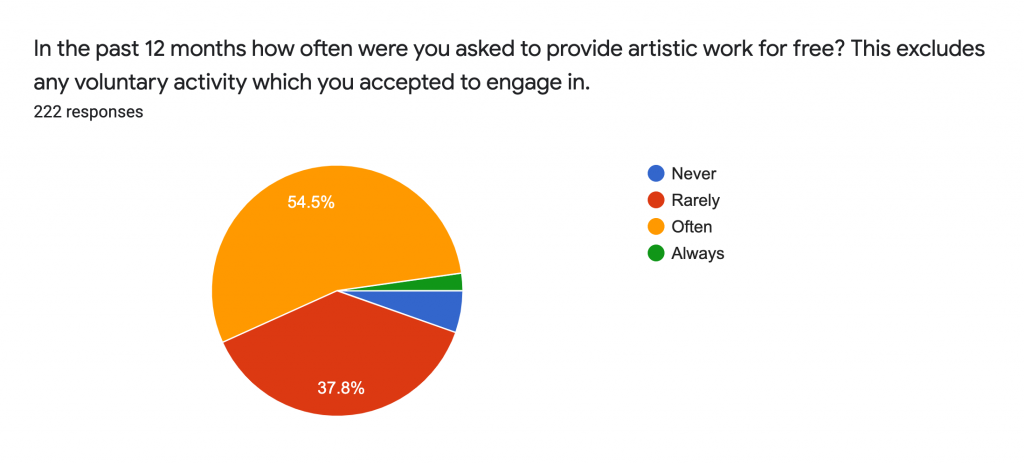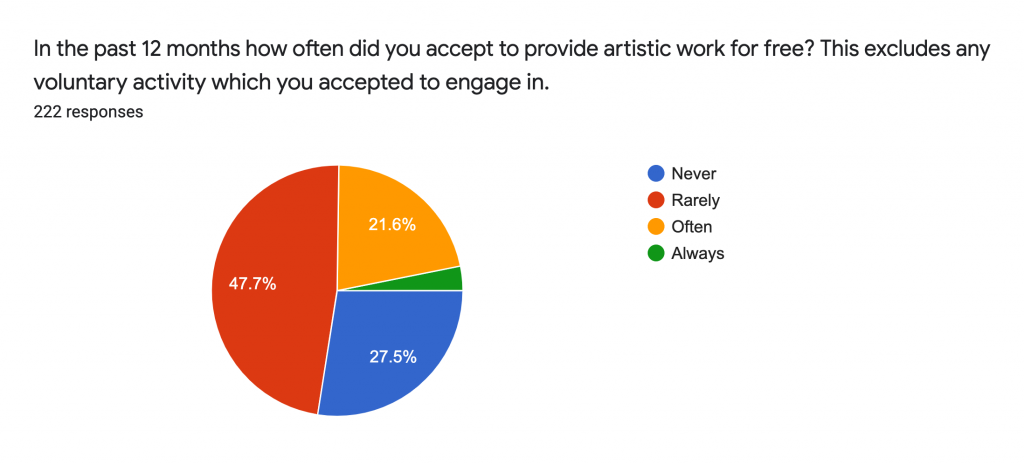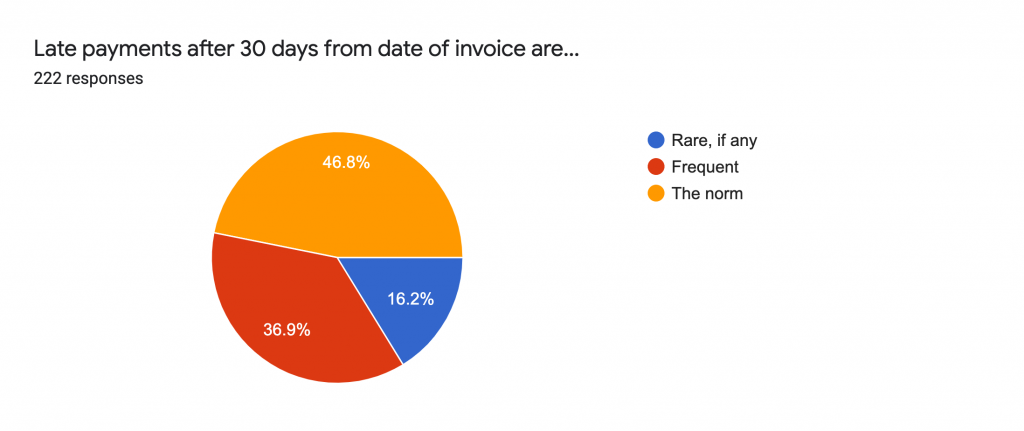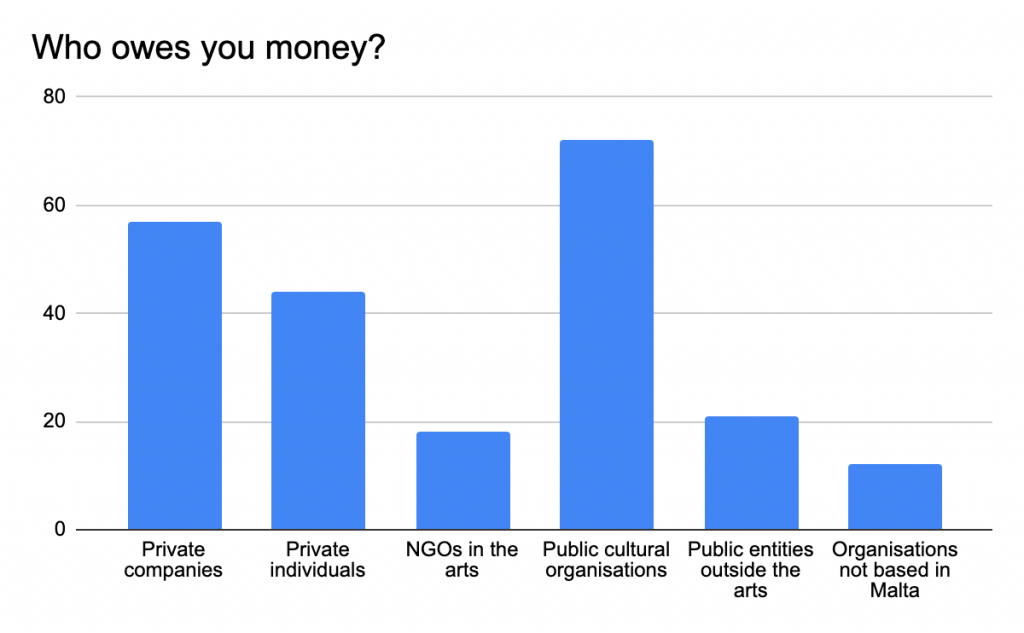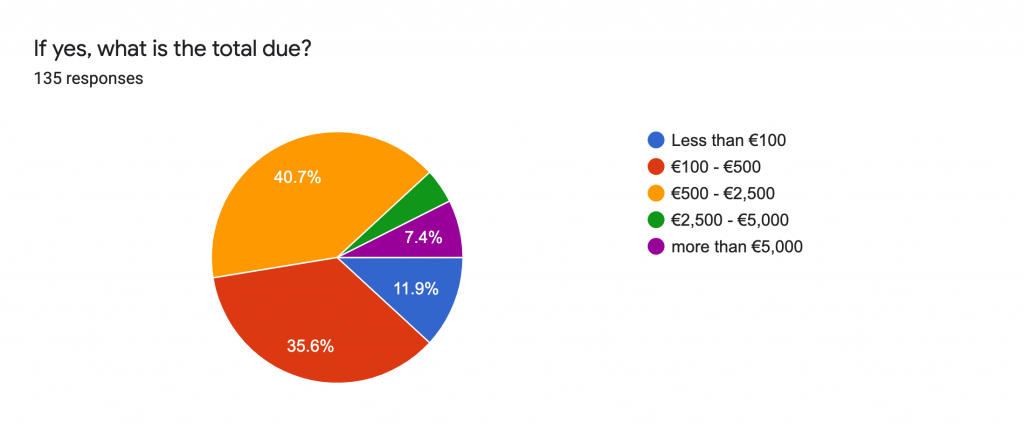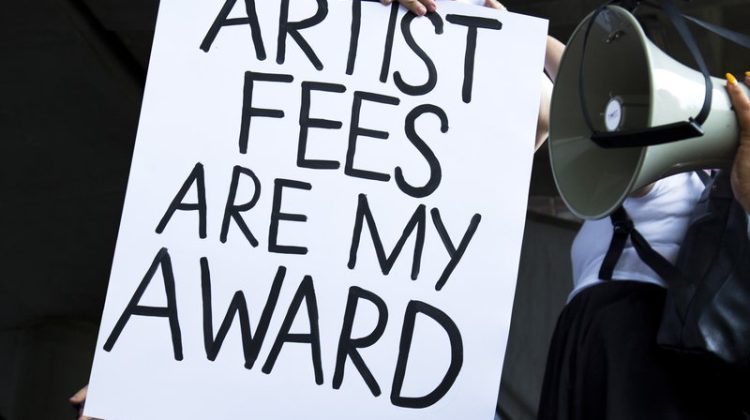
Paying the artist
In 2020 Arts Council Ireland launched a new policy to help improve the working and living conditions of artists and ensure that a career in the arts is viable. The culture of underpaying or not paying artists is not exclusive to Ireland and resonates with many artists across the world. The news of the campaign, Paying the Artist, was shared on social media by various artists in Malta opening up conversations on freebie culture, underpaid work and delayed payments.
Culture Venture decided to delve deeper into the topic and launched an online survey asking about freebie culture in Malta and the challenges of artists being paid for their artistic work and receiving timely payments. The idea of freebie culture is not a substitute for voluntary artistic work, which artists, be they amateurs or professionals, may wish to engage in out of their own free will and which creates immeasurable intrinsic value for the artists and the community. Professional artists keep on struggling to operate within an environment that supports fair and equitable remuneration for their work. This may force artists to provide free or low paid work due to unrealistic budgets or in exchange for exposure.
The online survey was open for 5 days and received 222 responses. 92.8% of respondents claimed to be professional artists, freelance or otherwise, earning an income, be it part-time or full- time from the arts. The responses were mainly from the performing arts sectors with theatre artists topping the list.

The first part of the survey addressed the issue of freebie culture, excluding any voluntary activity which artists accepted to engage in, with the majority of respondents (54.5%) claiming that in the past 12 months they have often been asked to provide artistic work for free. On the other hand, 37.8% have never been asked to provide work for free. Of those who were asked to provide artistic work for free, 27.5% never accepted, 47.7% of respondents rarely accepted, 21.6% often accepted and 5.4% always accepted.
Given three options as reasons quoted by clients to provide work for free, excluding voluntary activities, respondents selected ‘lack of budget’ as the main reason (71.2%), followed by ‘exposure’ (53.2%) and ‘charity event’ (37.4%). Various anecdotes quoted by respondents illustrate such realities. Here are a few highlights from the 66 anecdotes disclosed in the survey:
- An established businessman telling the artist directly that artists don’t work for money
- After the artist provided a quotation for the purchase of 10 works for a boutique hotel, the owner asked the artist to supply the digital file of artworks for the owner to print for free.
- A bar owner asked musicians to perform for free as a charity gig but it was an excuse for free entertainment.
- Artists were not paid fees to save their own project after a drastic cut in publicly funded work.

Whereas in the past 12 months 27.5% of respondents did not provide artistic work for free, the majority of respondents did, citing in-kind support followed by exposure and charity as the main reasons for accepting to provide free work. Anecdotal references provided by respondents show how work without financial remuneration can also be of value when the same artists deliberately choose, out of their own free will, to provide work for free. Reasons given include supporting a charity of their choice, access to networks, sharing of creative work with others, supporting other artists or being passionate about an idea and wanting to see the project implemented.
The second part of the survey measured the hotly debated issue of late payments flagged up by numerous artists. 83.7% of respondents claimed that late payments are the norm or frequent. 54.5% of respondents currently have pending payments for artistic work invoiced more than 30 days ago. 40.7% are awaiting payments between €500 and €2,500 and 35.6% between €100 and €500. The top three debtors are Public Cultural Organisations, private companies and private individuals.
Some anecdotes emerging from the research:
- ‘It has frequently been the case where contracts are
not drafted, sent or signed before the actual rehearsal and performance period
commences’. - ‘Even where contracts are drafted, it is often the
case that late payments still happen, leaving the artist in the dark’. - ‘Sometimes companies put you in an uncomfortable
position where you have to ask about what budgets you have to work with and
also to ask if that budget has to cover your fee’. - ‘I’m frequently accused of being difficult for
demanding clients to honor payment terms’. - ‘It is humiliating and extremely disrespectful
especially when the public government funded institutions are late with the
payments’.
As announced in the survey, this data is being used by Culture Venture to open up a policy conversation on the matter and support artists present a collective voice on their right to enjoy their professional status, including earning a living income.
A major barrier for the sector to improve its professional status is the lack of artist representation within unions and industry-led associations. In addition, the resistance by some artists to engage in professional arts management will reinforce further the current precarious employment conditions. However, public policy measures can still be taken to address a few of these challenges. The public sector, as a major investor in the arts, needs to set an example by ensuring that fair and equitable conditions are offered to artists, providing contracts and payments on time. Public funding commitments, be they commissions or grants, should emphasize further the importance of appropriate remuneration for artists and their right to enjoy a living income from the artistic work they generate. Continuous advocacy within the private sector is also needed to ensure that the business community understands and values the contribution artists can make to the development of their enterprises.
The demand for improved conditions and payments to artists stems from an increase in the number of individuals striving to earn a living from the arts. Every request for free work in the name of exposure and every underpaid offer undermines the value of the arts and the livelihood of the artist. It threatens the growth of artistic talent and reinforces a culture that free or underpaid work pay the bills. They don’t.
If you want the arts, pay for them, fairly and on time.

